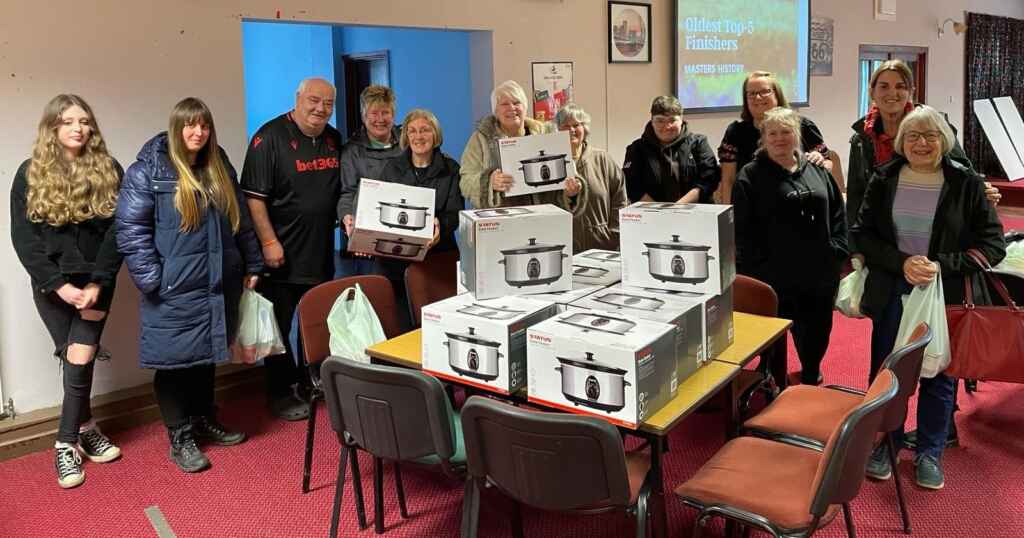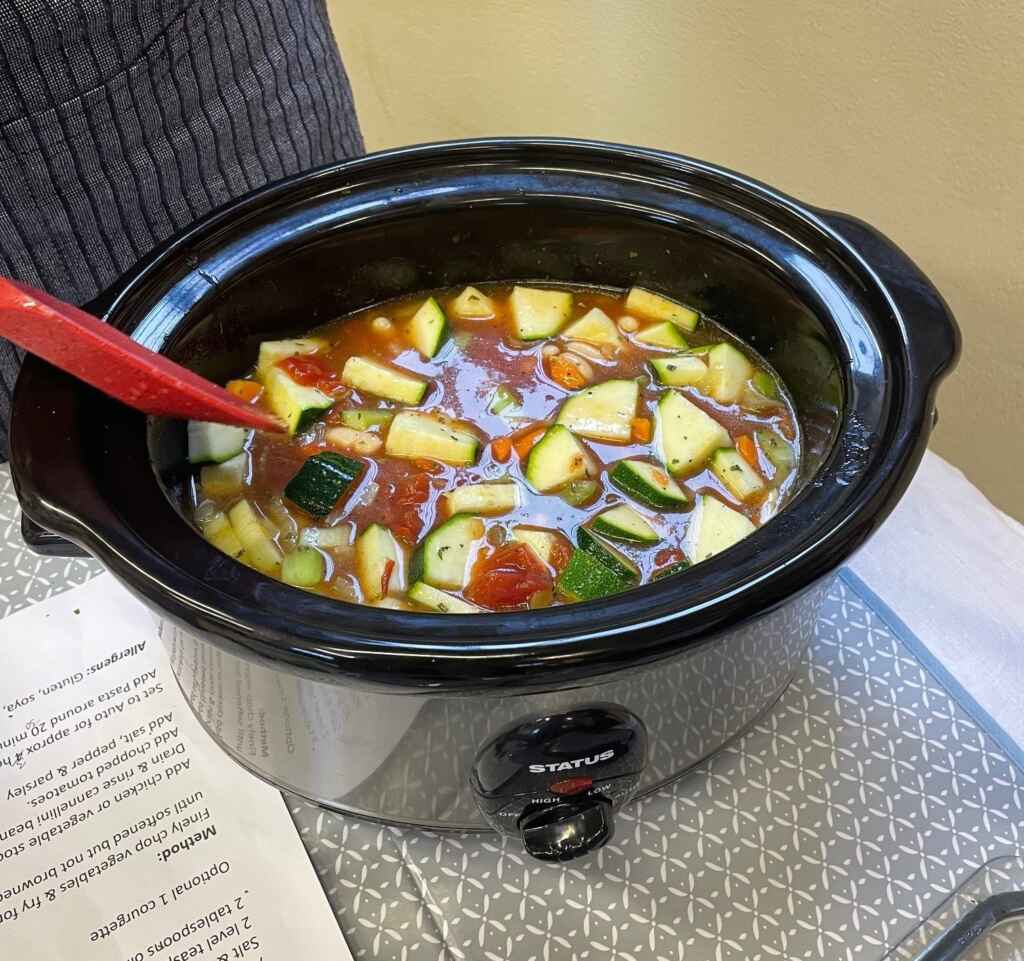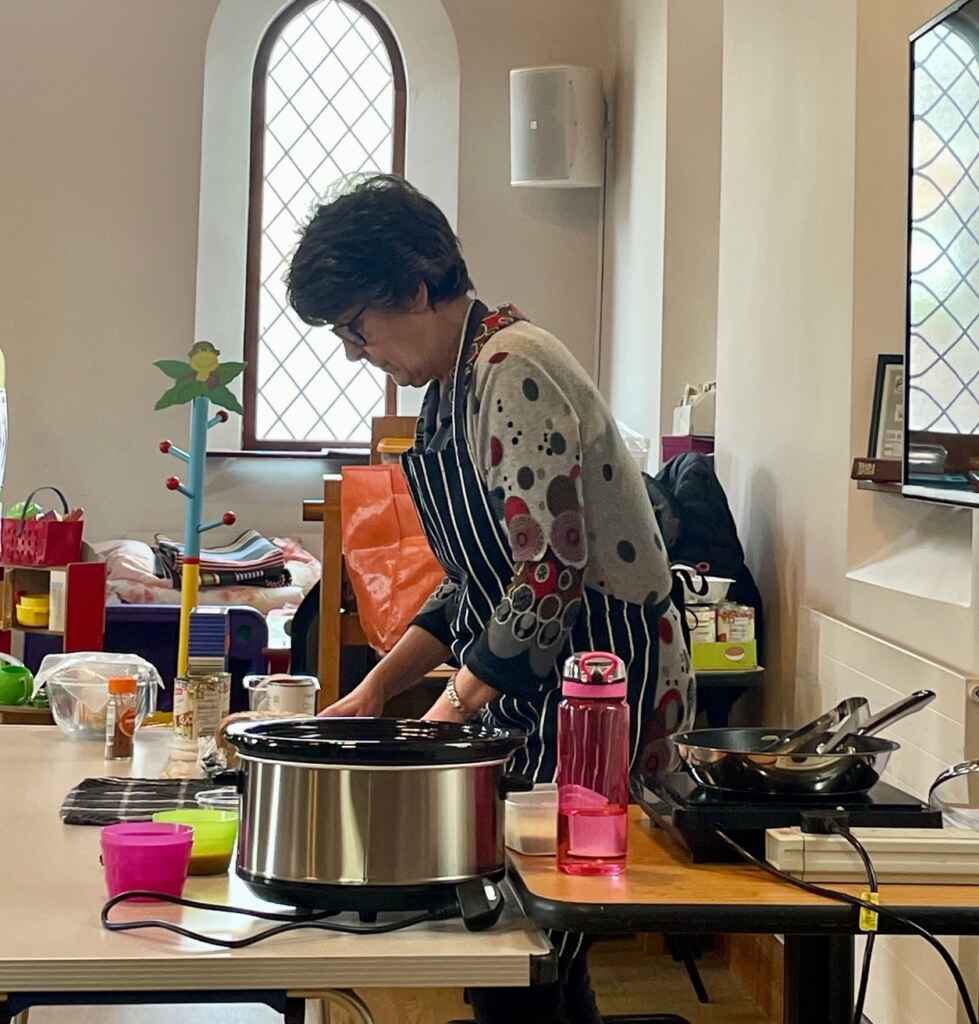Slow Cooking Courses
Winter in particular is a time for warm, hearty and healthy meals and slow cooking is an ideal way of preparing these with reduced energy consumption (approximately 4p per hour). Of course, slow cooked meals can be enjoyed all year round and can be a convenient and organised way of preparing a meal ready to come home to. Walking through the door at the end of a long and possibly stressful day, being welcomed by the wonderful smell of a pre-prepared meal and knowing that there is no need to start cooking is a welcome relief and just requires a small amount of preparation earlier in the day.
Slow cooking is a versatile cooking method and, as one attendee commented, it frees up your time for doing other things – whether at home or work – and recipes are easily adaptable for someone living on their own (with the option of batch cooking) or for a family.
“[It’s] very helpful to help the elderly and people living alone”
“Ideal for first time cooks and busy mums … and those leaving home for the first time”
Last year’s slow cooking courses proved extremely popular with communities in Warwickshire and, due to their success, Warwickshire County Council have agreed to fund a further 12 courses through the 2024/25 winter period. The Council is funding the cost of chefs, ingredients and venues, Cadent is providing slow cookers to the participants and WRCC is organising and coordinating the courses.
Each course allows for 12 participants, so a total of 144 Warwickshire residents will benefit from learning how to use their slow cookers, being given meal ingredients and a booklet of easy to follow recipes to try at home. They will also benefit from meeting and socialising with other members of the community sharing a common interest. With winter coming and energy prices rising in October this is perfect timing to take advantage of this free course.
Venues are in the process of being organised and details will be added below once confirmed. Each course will consist of four demonstration sessions – comprising a hearty starter, two mains and a pudding – and will be led by an experienced chef supported by volunteers at the venue. Attendees are required to attend all the sessions, and each will receive a free 3.5l slow cooker, ingredients for that day’s menu and a selection of recipes to try at home, plus a free energy and resource pack and a carbon monoxide alarm.
Confirmed courses to date:
-
The Open Door, 3 Slade Hill, Hampton Magna starting on Wednesday, 18 September at 1.30pm
-
Stratford Town Trust Community Hub, Venture House, Avenue Farm Industrial Estate, Birmingham Road, Stratford upon Avon CV37 0HR, starting on 19 September at 1.00pm
-
St. Michael’s CE Academy, Children and Family Centre, Hazel Grove, Bedworth, CV12 9DA, starting on 5 November at 1.00pm
-
Wembrook Community Centre, Donnithorne Avenue, Caldwell, Nuneaton CV11 4QL, starting on 6 November at 1.00pm
-
Lighthorne Heath Children and Family Centre, Stratford Rd, Lighthorne Heath, CV33 9TW, starting on 8 January at 10.30am
-
Church House, Alcester, 17 Butter Street, Alcester, B49 5AL, starting on 8 January at 4.30pm
-
Regal Court, Long Street, Atherstone, Warwickshire, CV9 1RP starting on 14 January 2025 at 10.30am
-
Benn Partnership, Railway Terrace, Rugby CV21 3HR starting on 25 February at 1.30pm
-
Cohort 4, 164 Long Street, Atherstone, CV91AE starting on 26 February at 11.00am
-
Lawford Light House, School Street, Long Lawford, Rugby CV23 9AT starting on 19 March at 1.30pm
-
Hill Top, Big Local, 1 Donnithorne Avenue, Nuneaton CV10 7AF starting on 26 March at 11.00am
Sessions last approximately 1 1/2 hours. Attendees are required to confirm any food intolerances, allergies, dietary requirements etc in advance.
Please note that WRCC do not take any bookings directly from people looking to attend slow cooking courses.
Here’s one we prepared earlier!
Course attendees are able to sample each delicious recipe pre-prepared by the qualified chef.
History of WRCC Slow Cooking Courses
In 2022-23, WRCC initially trialled our first slow cooking courses with the support of volunteers in Kenilworth, as well as at Lighthorne Heath and Atherstone Warm Hubs. Feedback from course attendees, hub organisers and volunteers, plus the chefs themselves, helped us develop our overall structure and delivery to set up more courses goin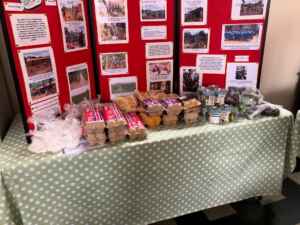 g forwards.
g forwards.
Food affordability became an increasingly important issue for many residents as the cost of living continued to rise during Winter 2023-24. WRCC worked on developing slow cooking courses, as this method of cooking uses a low amount of energy and is suitable for using cheaper cuts of meat and ingredients.
Slow cooking is also very easy and convenient, and the longer cooking times result in meals having richer texture and taste, which can be appealing for those people who may not otherwise bother to cook and rely on “quick fix” meal solutions instead (or go without).
In 2023-24, thanks to funding from Warwickshire County Council (as part of their Warwickshire Food Strategy) and with slow cookers provided by Cadent, WRCC organised eleven slow cooking courses running from October 2023 – May 2024, with a twelfth course being held in June 2024 at the Sydni Centre in Sydenham.
The full project report for 2023-24 can be found here
Slow Cooking Recipes
Here are a few cost effective and easy to make meals that you may like to try – remember the recipe is only a starting point, and you can always adapt it to suit your individual taste and preferences, and of course substitute ingredients for those you may already have in your store cupboard to reduce waste.
Low and Slow Recipe Booklet – slow cooking recipes from NHS Borders
Centre for Sustainable Energy slow cook recipes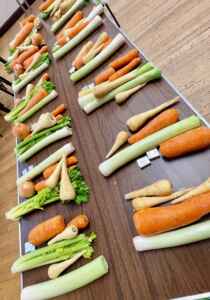
You can also find lots of other recipe ideas plus resources below. It’s also easy to find inexpensive slow cooking books or you can borrow some from your local library. And why not share tips and ideas with others who may be interested at your local Warm Hub?
BBC Good Food slow cooking recipes
And don’t forget to check out these handy slow cooking guidelines!
Other cooking and food projects
For more information about Warwickshire Food Strategy, including newsletters and how to become a Community Food Champion, Kind Communities Kind Food events, grants, community pantries and more, visit the Warwickshire Food Strategy webpage.
WRCC is also looking at other sustainable and affordable food projects as part of our Warm Hubs project, and if you would like to discuss any ideas you may have, please contact our Warm Hubs team.

